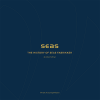The Two Gods of Leviathan: Thomas Hobbes on Religion and Politics
As well as being considered the greatest English political philosopher, Hobbes has traditionally been thought of as a purely secular thinker, highly critical of all religion. In this provocative new study, Professor Martinich argues that conventional wisdom has been misled. In fact, he shows that religious concerns pervade Leviathan and that Hobbes was really intent on providing a rational defense of the Calvinistic Church of England that flourished under the reign of James I. Professor Martinich presents a close reading of Leviathan in which he shows that, for Hobbes, Christian doctrine is not politically destabilizing and is consistent with modern science.
ContentsAcknowledgments; A note on references; Introduction; Part I. The Religious Background to Hobbes’s Philosophy: 1. Considerations upon the reputation and religion of Mr. Hobbes; 2. Religion; Part II. Law, Morality, and God: 3. Power, obligation, and justice; 4. Law; 5. The history and idea of covenants; 6. Sovereign-making covenants; Part III. Religion Within the Limits of Science and Politics: 7. God; 8. Revelation, prophets, and miracles; 9. Angels and eschatology; 10. The Church; 11. Scripture; Conclusion; Appendices; Notes; Bibliography; Index.
- Forlag: Cambridge University Press
- Utgivelsesår: 2003
- Kategori: Filosofi
- Lagerstatus: Ikke på lagerVarsle meg når denne kommer på lager
- Antall sider: 448
- ISBN: 9780521531238
- Innbinding: Heftet













